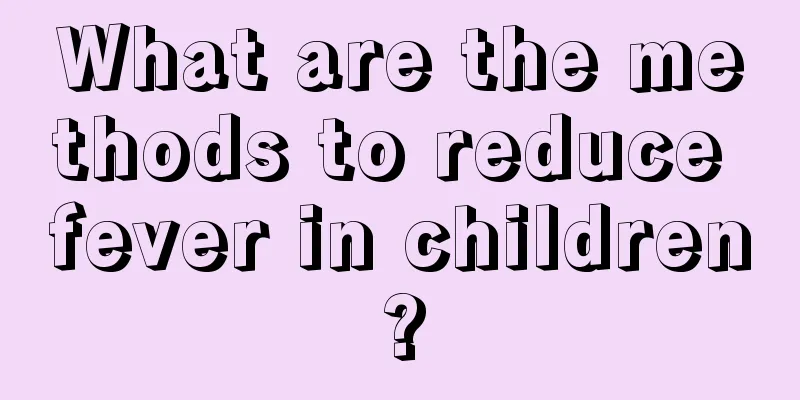Is it good for newborns to drink probiotics?

|
In recent years, probiotics are very common in our lives. When we go to maternal and child stores or pharmacies, we are often recommended probiotics. Many people think that probiotics are good things. Eating them regularly can regulate children’s stomachs, help babies digest, and promote children’s development. In fact, probiotics cannot be taken for a long time. On the contrary, long-term use is harmful. It is best to give them to your baby under the guidance of a doctor. What are probiotics? Probiotics are a type of live bacterial preparation that can promote the balance of the body's flora. By inhibiting and killing pathogenic bacteria, it promotes the survival of beneficial bacteria, thereby regulating the gastrointestinal flora, enhancing intestinal resistance, and achieving the effect of treating indigestion such as bloating, diarrhea, and constipation. Scientifically edible probiotics Although probiotics are bacteria that are beneficial to the human body, in theory there is no problem if you eat too much of them. But everyone, especially babies, has different physical constitutions, and the human body itself has a certain ability to regulate. In addition, babies should consume probiotics in moderation and not blindly consume large amounts. In order to ensure the formation of normal flora in the human body, especially in infants and young children, certain probiotics can be added to the diet of infants and young children. You can choose foods that already contain probiotics, such as yogurt, infant formula containing probiotics, etc., or you can choose special probiotic preparations. It is best not to take probiotics for a long time Long-term use of artificially synthesized probiotic products by the human body will cause the intestinal function to gradually lose its ability to reproduce beneficial bacteria. Over time, the human intestine will become dependent on it, which is medically known as "probiotic dependence." Once the human body suffers from "probiotic dependence", it will rely on and use artificially synthesized oral probiotic products to maintain a healthy state of life for the rest of its life. Other possible side effects include affecting the metabolism of carbohydrates and fats and immune dysfunction. If your child has indigestion, you can make some millet porridge for him. Let the floating soup on the surface cool down and drink it when it is not hot enough. Do not eat the millet inside. Millet soup is not only nutritious but also good for the stomach. However, do not eat spicy, raw or cold food during this period. For normally developing children, there is absolutely no need to supplement with probiotics. Breastfeeding can produce more beneficial bacteria The best way to stimulate the production of more probiotics in children is to breastfeed. Breastfeeding is a bacterial feeding process because the milk ducts of the breasts contain normal probiotic flora. Breastfeeding can pass normal flora to the child, allowing the child to establish normal intestinal flora as early as possible. Probiotics can regulate the stomach and intestines, but I am worried that the baby is too young to eat them. So can newborns eat probiotics? Newborns can take probiotics, but it depends on the situation. They cannot be taken casually. You still have to follow the doctor's advice. Under what circumstances is it necessary to supplement with probiotics? 1. Babies who are born prematurely, by caesarean section, or who are not breastfed cannot get enough probiotics from their mothers, and the intestinal flora that protects health is not sound. They may suffer from weak constitution, loss of appetite, dry stools, etc. They should be supplemented with probiotics in appropriate amounts. 2. When malnutrition is caused by loss of appetite, indigestion, milk intolerance, acute and chronic diarrhea, dry stools and poor absorption function, a large number of probiotics in the intestines of children are lost, and the unrestrained pathogenic bacteria or conditional pathogens may take the opportunity to cause disease and cause an imbalance of intestinal flora. Timely supplementation of probiotics can re-establish the balance of intestinal flora and maintain intestinal health. 3. When taking antibiotics. Antibiotics, especially broad-spectrum antibiotics, cannot distinguish between harmful bacteria and beneficial bacteria, so when they kill the enemy, they often kill the beneficial bacteria as well. Taking some probiotics at this time or later will play a good role in maintaining the balance of intestinal flora. |
<<: Does the newborn have little red spots around his mouth?
>>: Why do newborns fart a lot and smell bad?
Recommend
What causes a baby's heart murmur?
Every newborn baby is an extremely precious treas...
What to do if your child has myopia and astigmatism
In the past, most people with myopia were student...
What is the normal range of a child's pulse?
The healthy growth of children is what parents ar...
What happens when a child's new teeth grow out but the old teeth do not fall out?
The most impressive thing about children in the p...
What to do if children have tears in their eyes
When it comes to tears in spring, many people hav...
Will teething cause fever?
I believe that many mothers have found that when ...
Don't fall into these treatment misunderstandings for children with amblyopia
Nowadays, many parents are often too busy with wo...
What to do if your baby is born with low blood sugar
Maybe you think that hypoglycemia only occurs in ...
What should I do if my baby has a fever and no appetite?
When children have a fever, their appetite will b...
What are the benefits of giving probiotics to babies?
Many mothers must have heard this sentence: in ad...
How to treat chickenpox in a one-year-old baby
It is common for babies to get chickenpox, which ...
What is the cause of the child's swollen face?
Children's skin is relatively tender and gene...
Small pimples on the child's wrist
Children's wrists are very likely to be injur...
What to do if the baby's eye tail is red
Because babies have tender skin and low immunity,...
Why does my 4-year-old baby blink too much?
Nowadays, the vast majority of families in China ...









